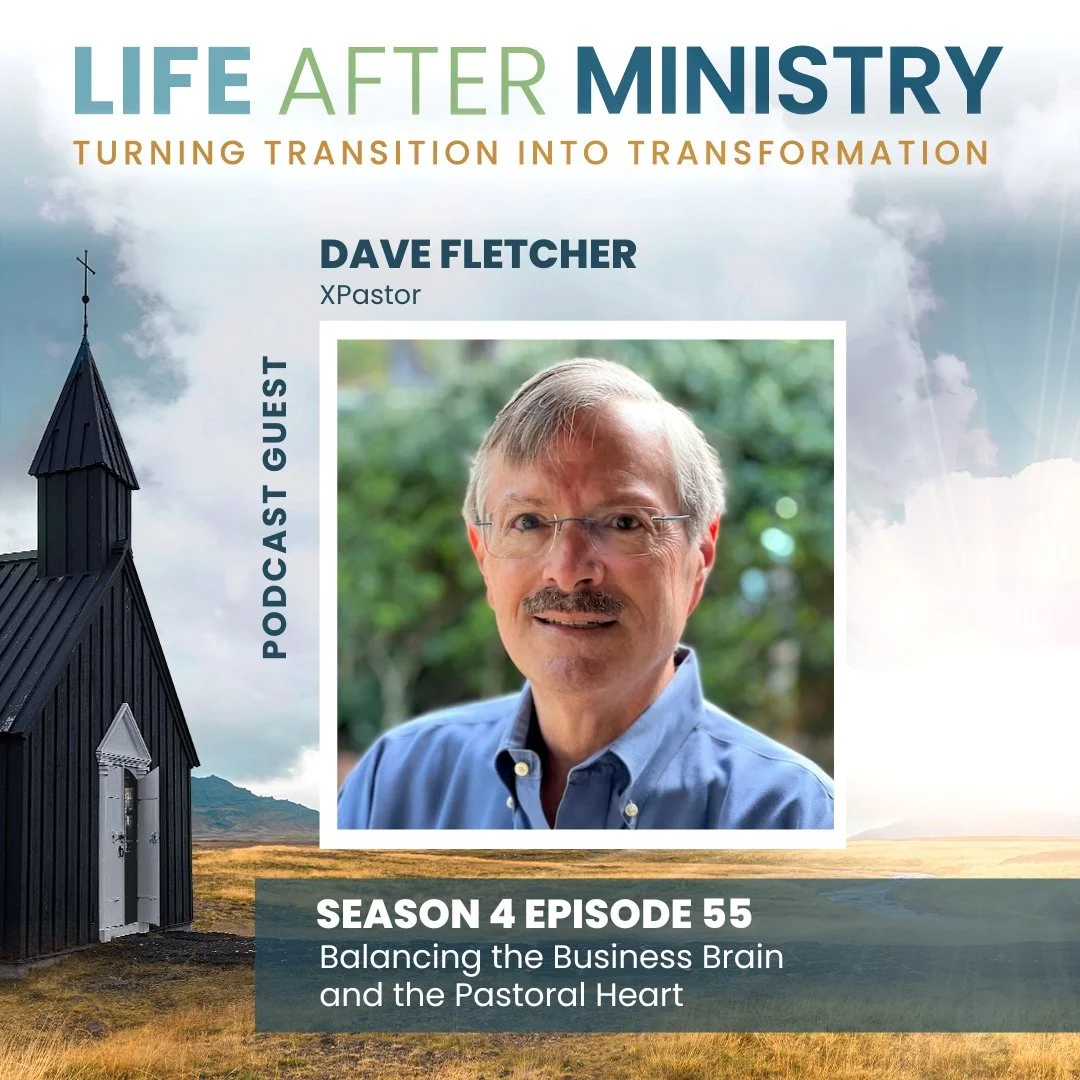The First Transition: What Eden Teaches Us About Leadership, Loss, and Letting Go
Before the wilderness, before the flood, before Sinai and sacrifice - there was a garden. And in that garden, a transition took place.
Not between one human leader and another, but between humanity and God Himself.
It was the first leadership rupture. The first loss of vocational calling. The first time someone was released from their role because of their choices. And yet - it was also the first act of covering grace. In that painful, history-altering moment, God models both justice and mercy. Consequence and care.
We often talk about biblical transitions beginning with Moses and Joshua. But if we’re building a theology of leadership change, we need to begin where Scripture begins - in Eden. Because the patterns laid there echo through every transition we face today.
Eden Wasn’t Just a Garden. It Was a Commission.
Genesis 1–2 is more than an origin story - it’s a commissioning.
Humanity is made in God’s image, and they are given responsibility. Rule over creation. Be fruitful and multiply. Cultivate and keep the garden. They are not passive recipients of blessing; they are co-laborers in the mission of God. This is the first leadership appointment.
Adam and Eve don’t merely inhabit Eden. They steward it.
Which makes Genesis 3 all the more devastating - not just personally, but vocationally. The fall doesn’t just fracture relationship with God. It brings about the loss of role, place, and purpose.
The First Exit Interview: “Where Are You?”
After the fall, God enters the scene not with punishment but with a question:
“But the Lord God called to the man and said to him, ‘Where are you?’” (Gen. 3:9)
This is not about geography. It’s about self-awareness. It’s the question every ministry leader should be asked in moments of transition:
Where are you emotionally?
Where are you spiritually?
Where are you vocationally?
God, who sees all and knows all, still gives space for the leader to locate themselves. And this is where healthy transitions begin - not in logistics, but in truth-telling.
You can’t hand off what you haven’t faced.
God’s question invites Adam and Eve to own what has shifted. In ministry, leaders must do the same. Before exiting a role or selecting a successor, we need to ask: What changed? What needs to be named? What must be confessed before it can be released?
Theology of Consequence: Eden as a Model of Just Transition
What follows is clear: Adam and Eve are no longer able to stay in the garden. The consequence of their choices affects their proximity, their vocation, their experience of the land. The transition is painful and unavoidable.
And yet, it is profoundly merciful.
“Then the Lord God said, ‘Behold, the man has become like one of us in knowing good and evil. Now, lest he reach out his hand and take also of the tree of life and eat, and live forever…’ therefore the Lord God sent him out…” (Gen. 3:22–23)
God removes them not to punish, but to protect. To prevent them from remaining permanently in a broken state.
This is one of the most under-preached truths about transitions: Sometimes, God ends assignments to protect leaders from permanent dysfunction.
We’ve seen it in the churches and organizations we serve, founders who stay too long and begin to rot the fruit they once grew. Teams who ignore subtle fractures until the entire culture splits. Boards who fear what honesty might cost them.
But in Eden, we see something different. A God who confronts the fracture and acts—not hastily, but purposefully.
The Grace of Covering: A Forgotten Step in Ministry Exit
Before they are sent out, something stunning happens:
“And the Lord God made for Adam and for his wife garments of skins and clothed them.” (Gen. 3:21)
This is grace.
Before the exile comes the covering.
Before separation, restoration.
God does not send them out in shame. He dignifies them. He clothes them. He symbolically communicates: You are not discarded. You are still Mine.
In ministry transitions today, this is often what’s missing.
We see leaders quietly disappear after decades of service. We see families hurt, isolated, and ashamed. We see boards avoid the conversation altogether. But what if - like God - we created rhythms of covering before sending?
Final blessing services.
Public words of honor.
Counseling support.
Career coaching.
Quiet dignity instead of quiet distance.
Eden Sets the Pattern for All Redemptive Transitions
The arc of Scripture follows this rhythm:
A place of calling.
A fall or shift.
A moment of reckoning.
A covering.
A sending.
A redemptive future.
Abraham leaves home to birth a nation. Joseph is removed from his role and restored in Egypt. Moses is called out of exile to return and lead. David transitions from shepherd to king. Peter falls and is restored with breakfast and a question. Jesus prepares His disciples for His departure—and promises a Helper.
Transitions aren’t side stories in Scripture. They are the story.
What Eden Demands of Us Today
For ministry leaders, boards, and organizations facing transition, Eden offers three essential truths:
1. Name the fracture. Pretending everything is fine only prolongs the pain. God names what is broken and so must we. Sin, fatigue, misalignment, or simply the end of a season—it must be brought into the light.
2. Don’t skip the covering. Leaders should not be left to navigate transition alone. Whether they’ve fallen or faithfully served, they deserve care. Counseling. Honoring. Dignity. Covering is part of the gospel story.
3. Trust the sending. God doesn’t abandon leaders after Eden. He meets them again and again throughout the redemptive arc of history. The one who exits the garden may still play a key role in what’s next.
A Theology of Transition Is a Theology of Redemption
If we’re going to lead well through transitions, we must move beyond corporate succession planning and into a biblical imagination of loss, grace, and renewal.
Eden is not a strategy template. It is a theological lens.
And through it, we learn:
That leadership roles are temporary, but image-bearing is eternal.
That consequences are real, but grace always goes further.
That letting go may hurt, but it may also heal.
In our work with Ministry Transitions, this is what we carry into every engagement: the belief that God is present in the shift. That grace is not just for moral failure, but for moments of release. That endings can be sacred.
And that even the first transition—when all was lost—was already laced with the hope of what would one day be restored.
Are you facing a transition? Don’t do it alone. Let’s walk it together.
With 25+ years in faith-based executive leadership, Matt Davis knows the wins, the losses, and everything in between. As Executive Pastor, he led a team of 140+, tackling the challenges that come with big vision and real impact. As President of Ministry Transitions, he guides churches through tough leadership changes. Matt and his wife, Marilee, host the Life After Ministry Podcast, where they dive into real talk with former pastors who’ve found their kingdom assignment beyond church walls - unfiltered stories of grit, growth, and God’s purpose beyond the pulpit.







